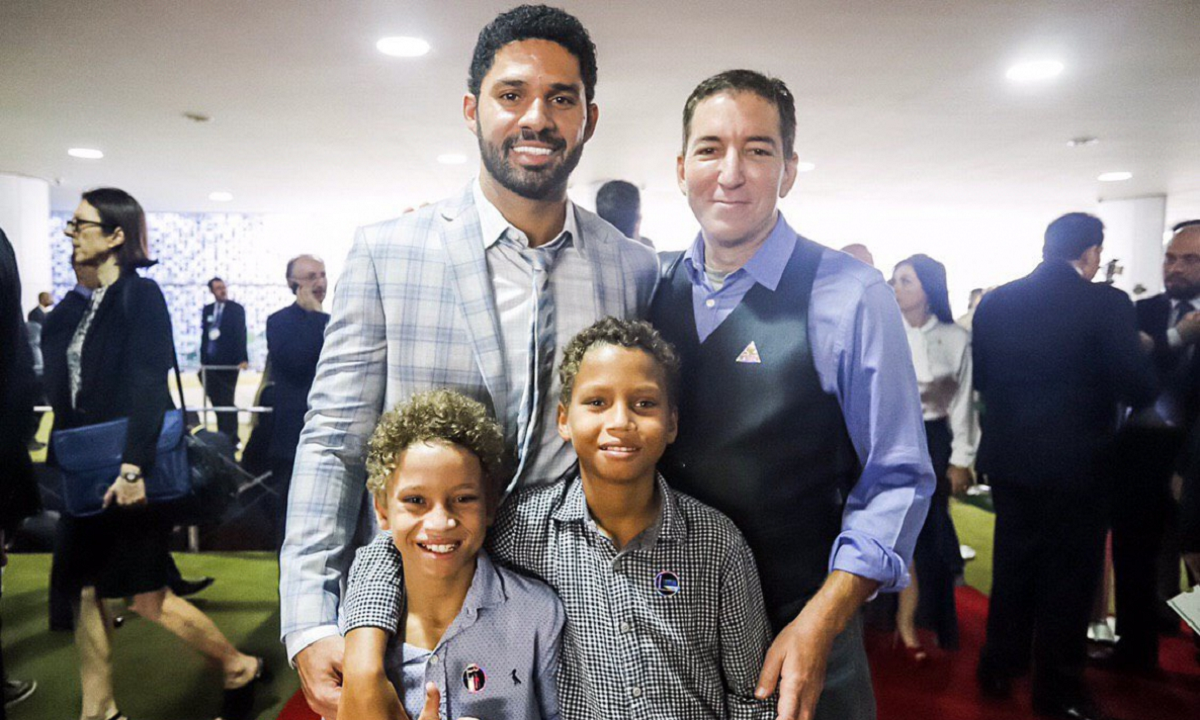Glenn Greenwald
The Left Needs to Learn How to Talk about Crime
Between a tough on crime far right and the temptation to pretend this is not a problem, the left needs to give people an answer.

The news media extensively covered the pathetic physical attack on me by Augusto Nunes when we were both live on-air on Jovem Pan in late 2019. But a much more significant event took place the night before, one that has stayed with me and shapes how I think about politics in both Brazil and the U.S.
I attended an event on journalism sponsored by a university in Sao Paulo. On the panel with me as a black leftist woman who was a professor there. She grew up in one of the city’s largest favelas.
She told a story involving her younger brother, who had twice been assaulted at gunpoint in the prior six months. Both times it happened when he was waiting for a bus in early dawn, before the sun came up, to take him on his multi-hour commute. Each time, they took his cellphone that he bought with his hard-earned hourly wages, and once even took his sneakers.
“Bolsonaro promises to kill all of the criminals doing this,” she said. “What does the left have to say to people like my brother?” The large crowd was silent and still. I don’t think anyone had an answer to that question. I knew I did not.
She was not, needless to say, praising Bolsonaro — either in general or for his Duterte-like authoritarian vow to extra-judicially murder people. Nor was she dismissing the structural injustices that help the left lose elections.
She was, instead, urging the left to confront the reality of people’s lives in Brazil, the desperation it brings, and the reason that maniacal authoritarian rhetoric can resonate. She was, in essence, challenging the left, demanding of it, that they more deeply acknowledge why people are so scared and angry, and improve their ability to persuade them that voting for leftists will improve their lives: not in theory but reality.
Her powerful point was recently highlighted for me in a visceral way, as the result of a personal and harrowing experience with violent crime. This incident was reported in the Brazilian press last week after I decided to write about it in the context of rising rates of violent crime in the U.S.
On March 5 — the day before my birthday — I was at a farm in the interior of Rio de Janeiro, which my family and I have been renting due to the pandemic. Because my two sons had school exams that required faster internet than is available at the farm, they were at our home in Rio with my husband. They had planned to come to the farm that night for my birthday but, thankfully, decided at the last minute to come the next morning instead.
That decision prevented my children from exposure to what would have been deeply traumatizing violent crime. At roughly 9 pm that night, five armed men invaded the farm. Two of them detained the armed security guard who works with our family, an off-duty police officer, while three of them pointed guns at me and ordered me into a small structure at the front of the farm.
Because we had been receiving more death threats than usual, I was relieved — to the extent one can be in such a situation — when they began demanding money. But we had little of value at the farm, and that made them believe we were hiding money from them and it drove them to increasing levels of rage.
They stayed for a full hour. The whole time, they forced the security guard to remain on the floor with his head down as they pointed a gun at his head and repeatedly threatened to kill him. At one point, they ordered me to open my mouth and put a gun in it, demanding to know where the “hidden money” was. They kicked the security guard so hard that they cracked several of his ribs. When they were finally ready to leave, they ordered us to a room at the back of the farm, locked us in a room, tied our legs and arms together, and left. The police officer has, understandably, been on leave from the force ever since.
I did not want to write about this. As a journalist, you try to avoid writing about your own victimhood. But I recently read a horrific story about a Vietnamese immigrant couple in California who suffered a similar but worse crime. It was worse because they had their 7-year-old daughter with them, and the four armed home invaders repeatedly threatened to shoot the girl. When I saw a video interview of the daughter explaining that she could not sleep before of fear that they would return, I decided to use my platform to raise money for them, but also to convey why violent crime is such a visceral experience, why those who experience or feel it are likely to think of little else.
The left does have proposals for the crime epidemic in Brazil: reducing poverty will reduce crime; more money for police training, intelligence and mental health care will reduce indiscriminate killing; greater penalties for reckless violence by the police can deter it.
But as that professor so insightfully pointed out, these solutions do not register on the same instinctual level that violent crime does. The fear of being killed or, worse, the fear that one’s children will, outweighs rational faculties. It drowns out concerns about more abstract or distant precepts of social justice. It sits in one’s soul, and that is what the left needs to be able to speak to if it wants to overcome right-wing demagoguery on crime.
Apoie o jornalismo que chama as coisas pelo nome
Os Brasis divididos pelo bolsonarismo vivem, pensam e se informam em universos paralelos. A vitória de Lula nos dá, finalmente, perspectivas de retomada da vida em um país minimamente normal. Essa reconstrução, porém, será difícil e demorada. E seu apoio, leitor, é ainda mais fundamental.
Portanto, se você é daqueles brasileiros que ainda valorizam e acreditam no bom jornalismo, ajude CartaCapital a seguir lutando. Contribua com o quanto puder.



